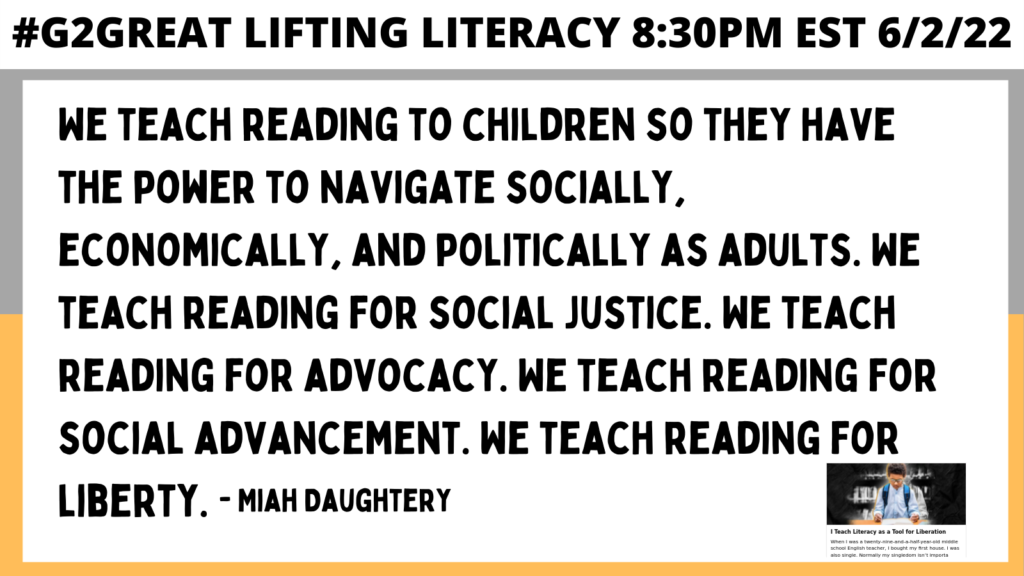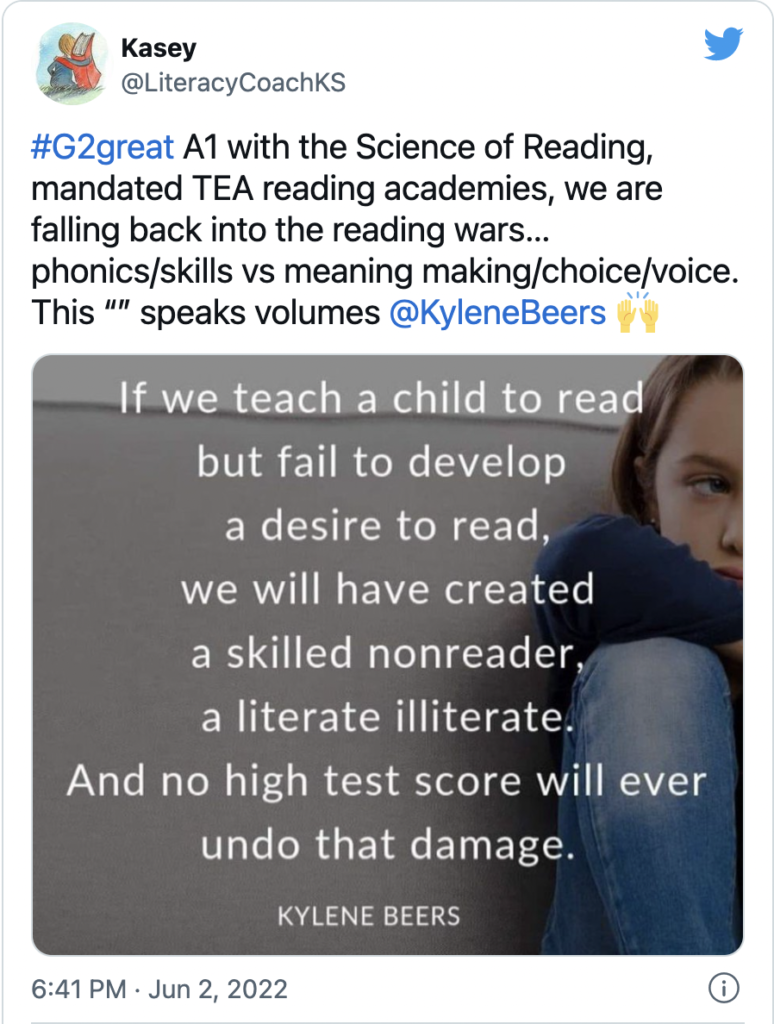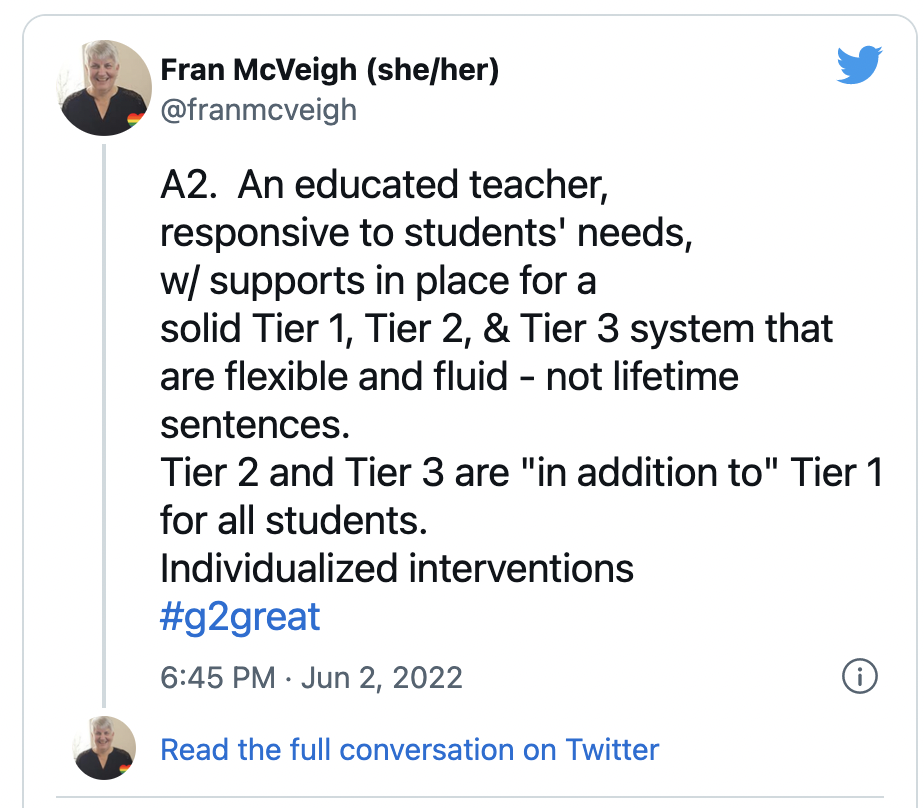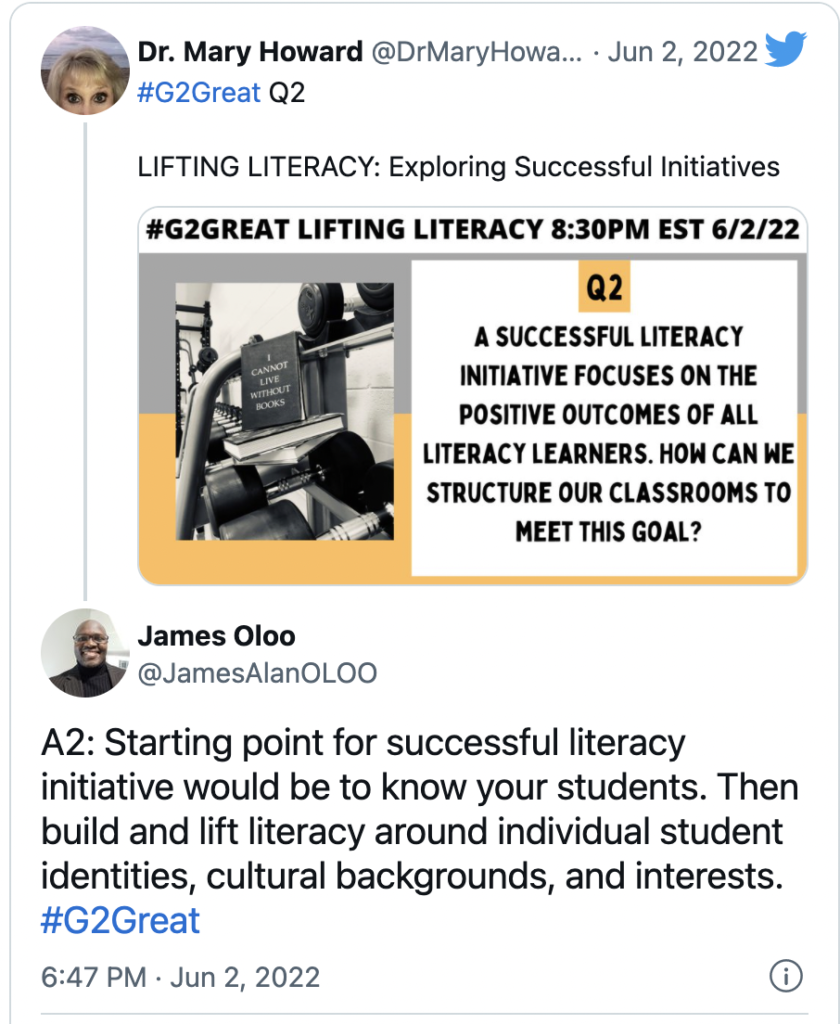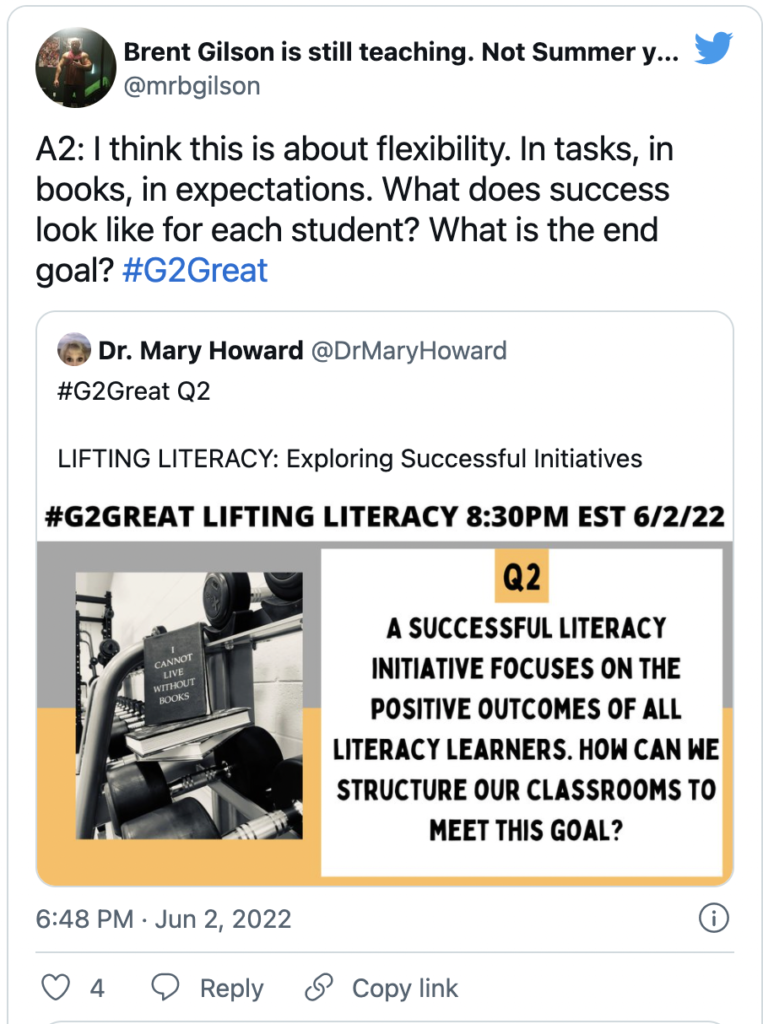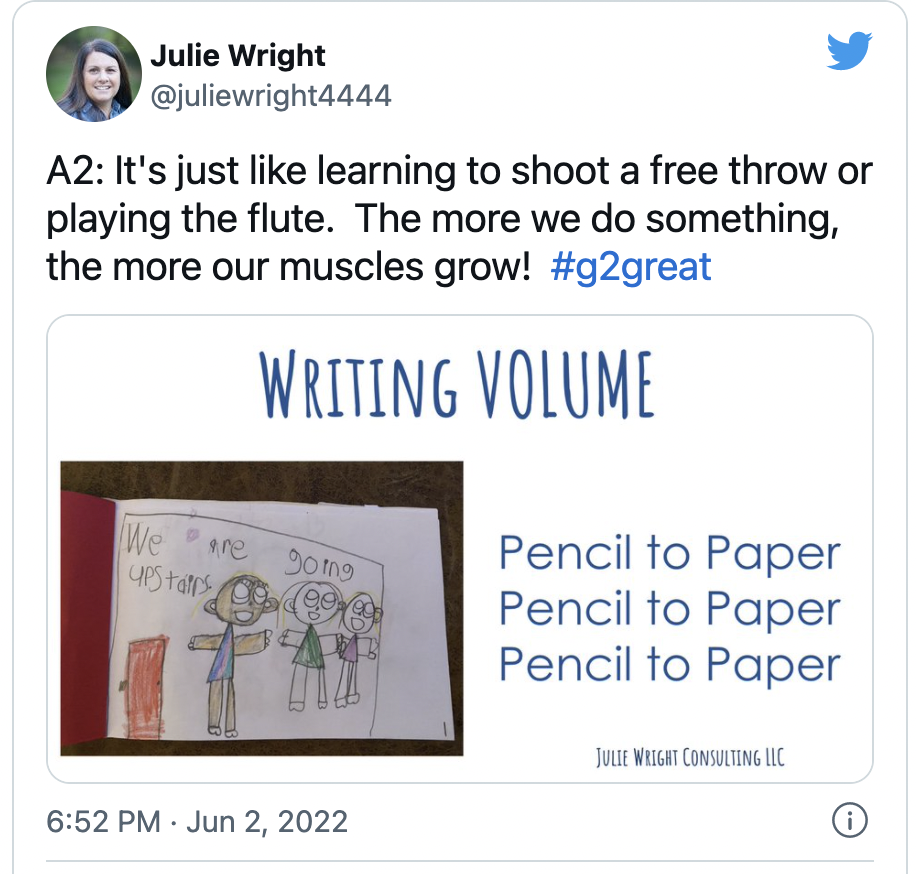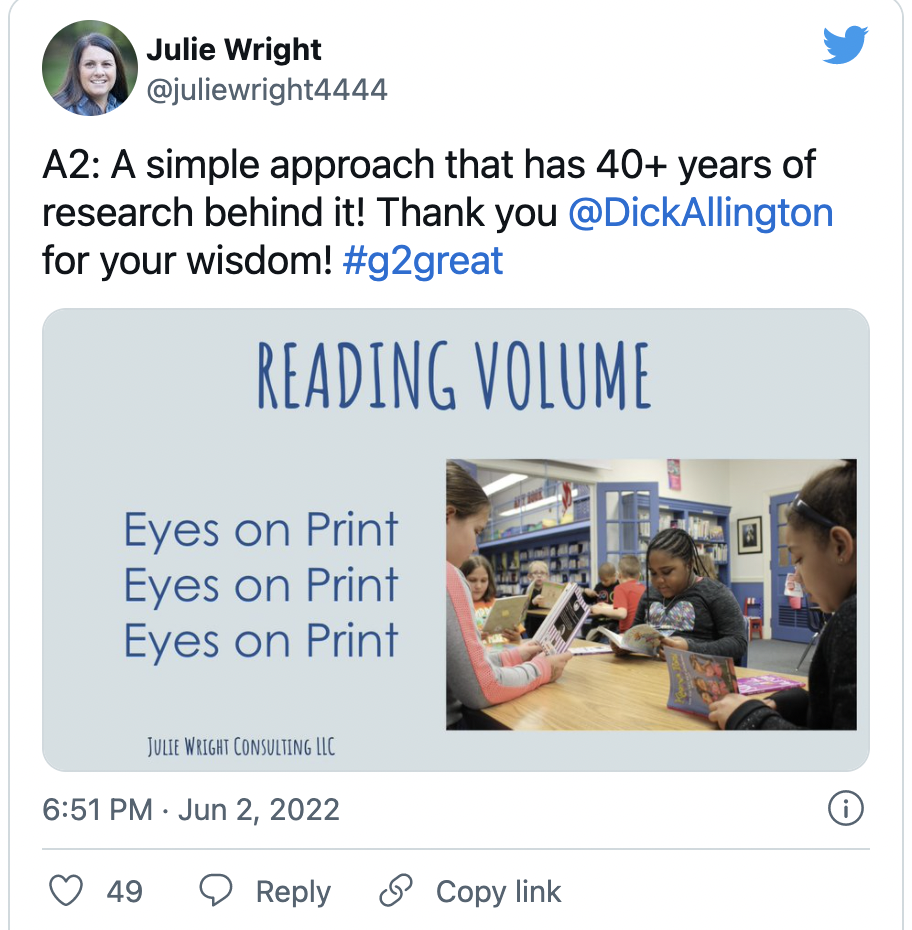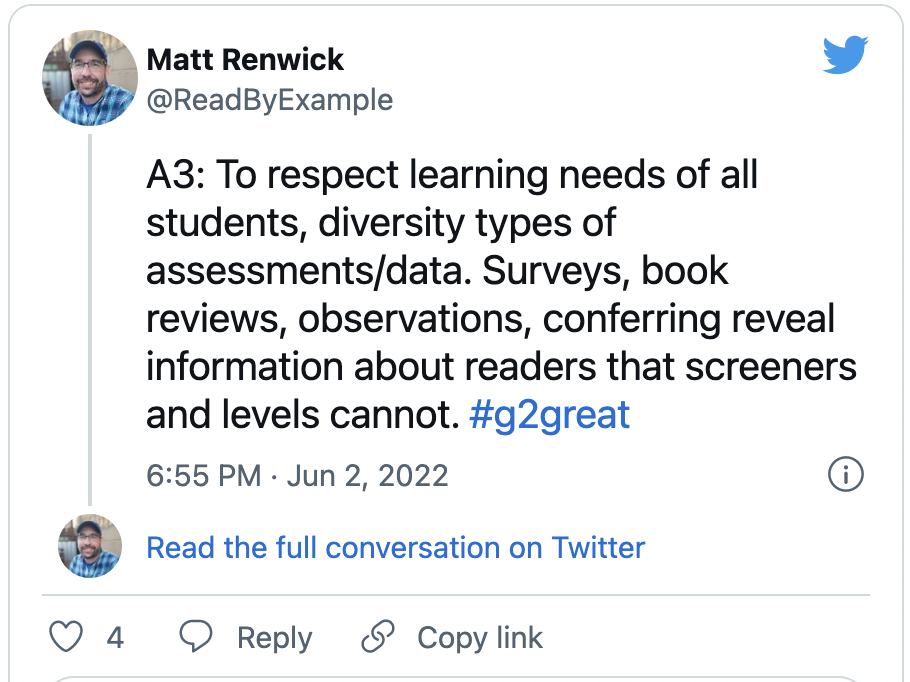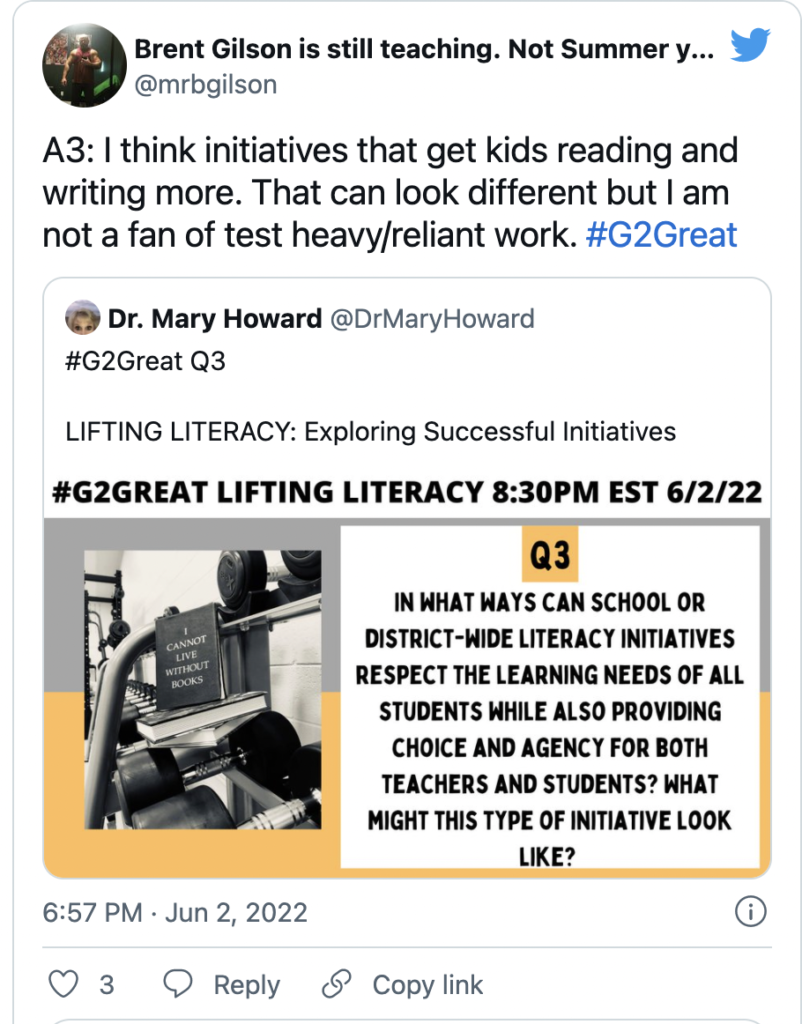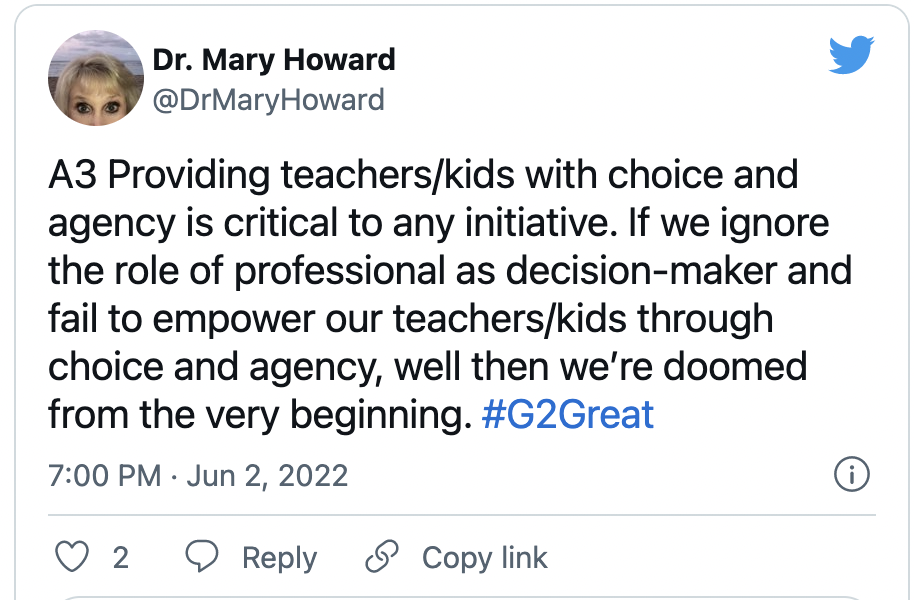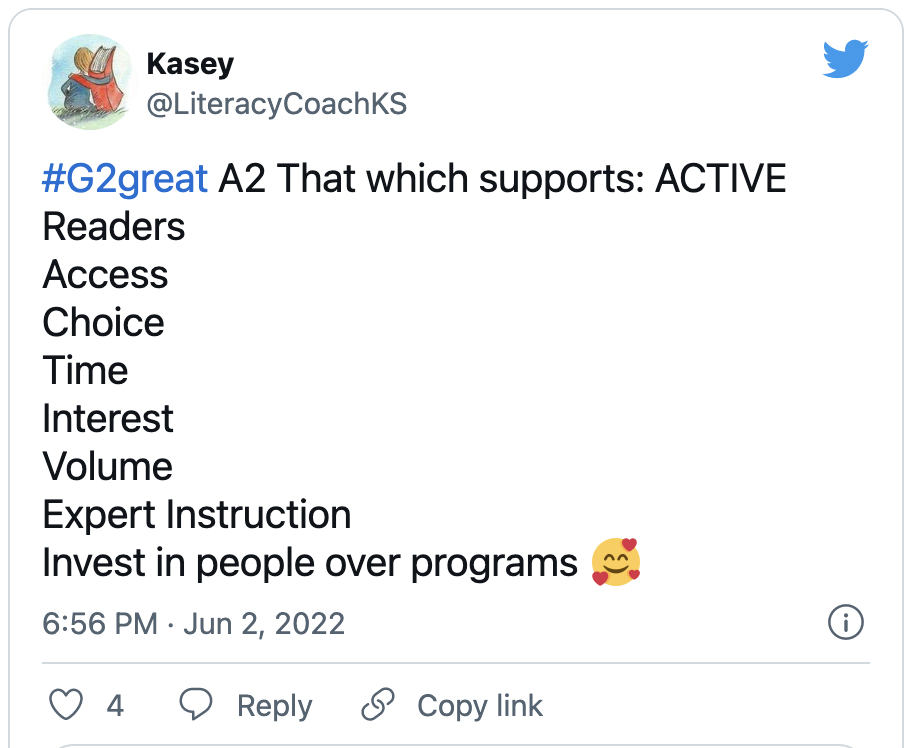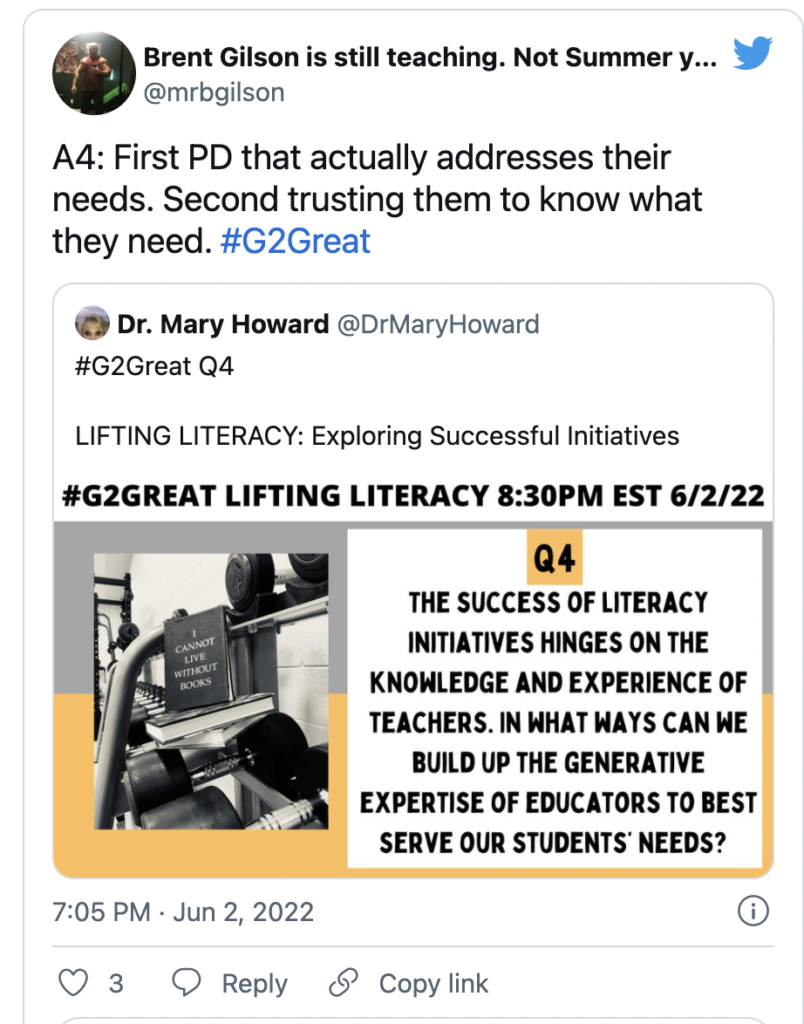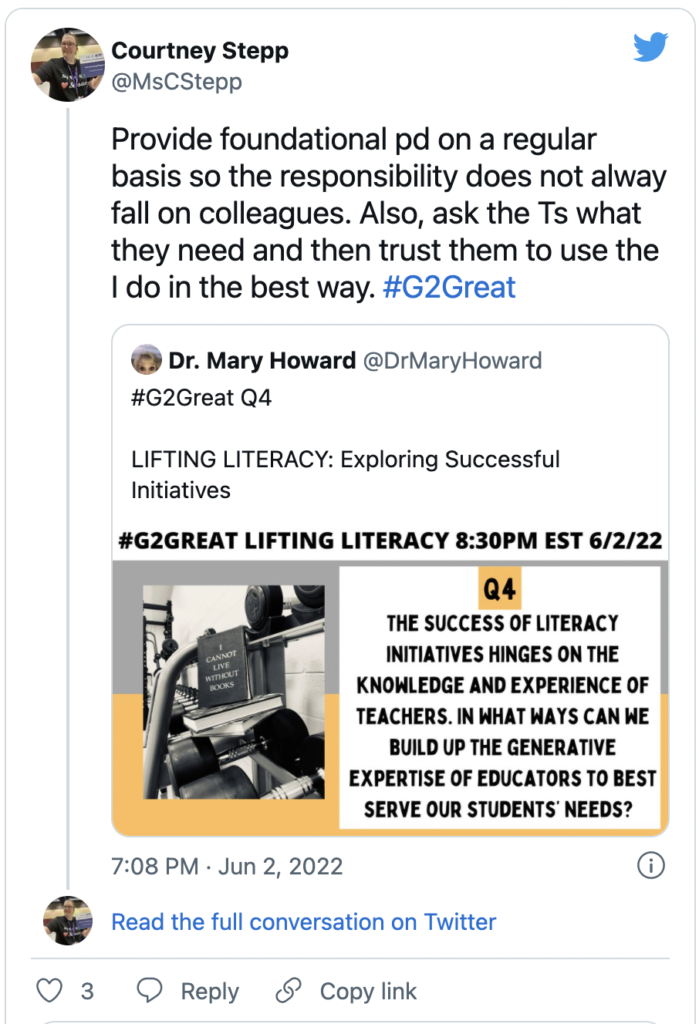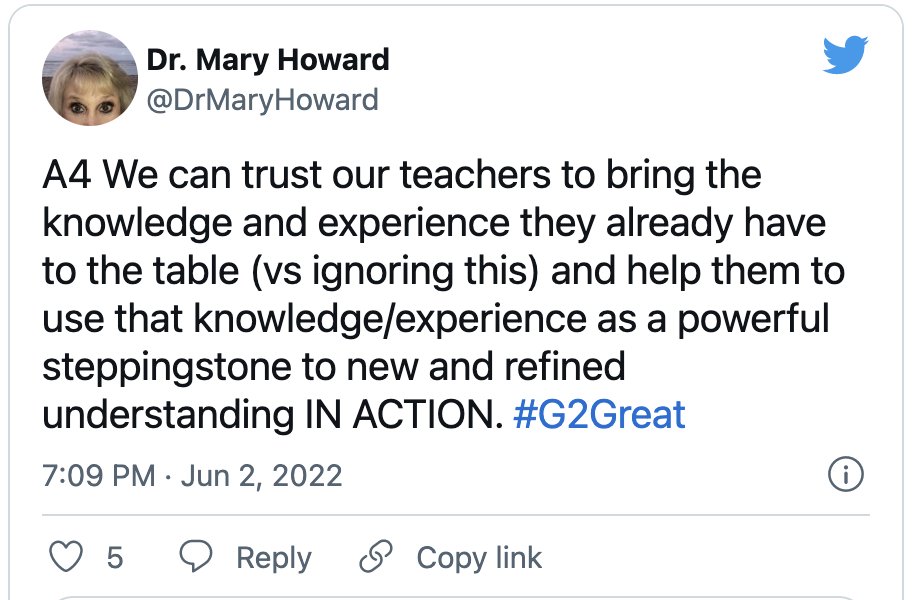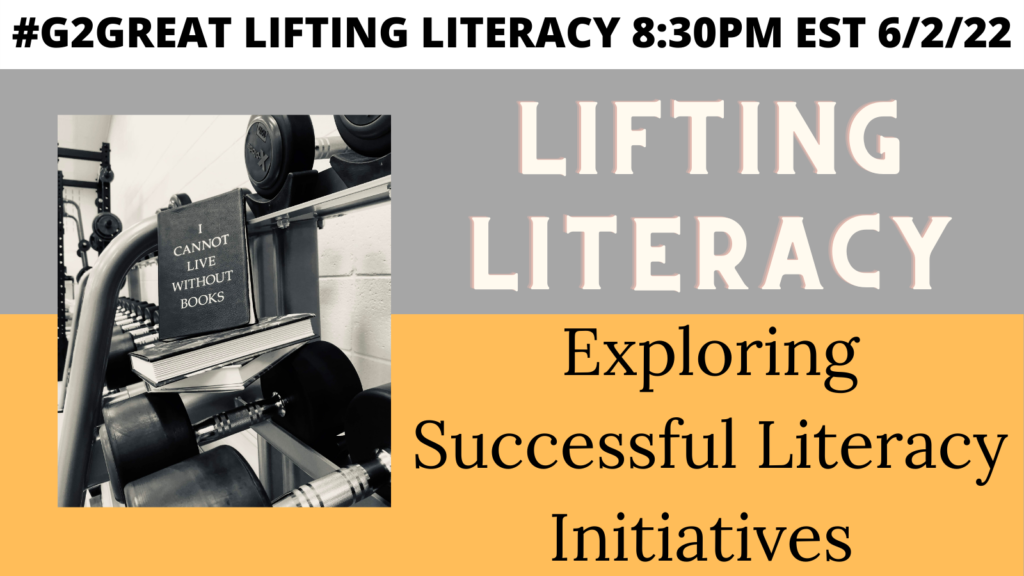
By Brent Gilson
For an archive of the chat check out the wakelet here
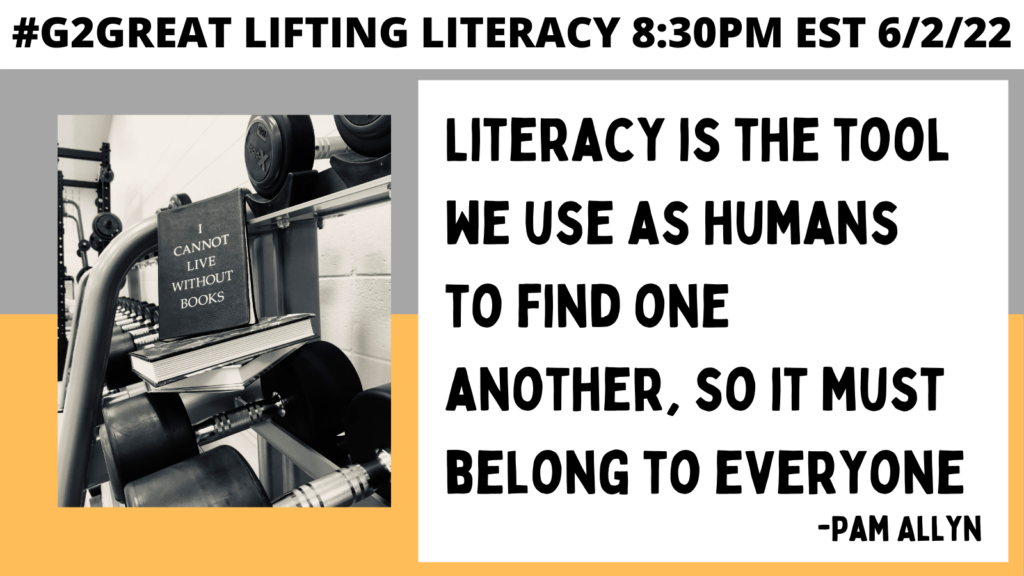
Last fall I was drawing in a school year filled with new challenges on top of working on grad school. It was interesting how I was learning about Successful Literacy Initiatives at the same time as we were embarking as a division on some new initiatives. The disconnect between what I was learning and what was been done caused an additional level of stress. So I spent more time researching and the consistent piece that always came up when looking for successful Literacy Initiatives was that they are student-focused, data-informed but not singular in focus and focused on teacher development and capacity. As we set out on the chat this week we looked at the topic of Literacy Initiatives and our experience with them, the successes and the failures, and where our focus needs to be.
Teachers discussed the positive and negative experiences that they have encountered with Literacy Initiatives. How they can go sideways when they do not follow student needs and when teachers, who are doing the work are left out of the process. Even more difficult when those making the decisions are not examining the full picture which we are seeing a resurgence of in the current SOR movements in some states leaving huge portions of reader development out of the picture.
When we consider the most important people in the room, our students, we get a better focus on what needs to be done. The knee-jerk reactions from those outside the classroom who are imagining wide-scale problems that do not exist for the majority of students tend to do more harm to all readers by limiting teachers’ choices and thus the choice of our students. So what do we need?
So we discuss flexibility and that we need to start with our students, we need things in place to help ALL students achieve. What does that look like? How can we demonstrate that we are respecting all students while also addressing any shortfalls or areas of concern?
It seems so simple. To support our students we need to work with them in mind. To support our teachers we need to provide them with the knowledge to do the work. As Kasey states below
Building up the knowledge our teachers need to meet the challenges of today is an important piece of any successful literacy initiative. One size fits all intervention or PD will miss the mark in a high percentage of students and teachers. We (all of us in the education system) are unique so we have unique needs that need to be addressed with unique ideas whenever possible. Unfortunately, we too often fall for the snake-oil salesmen who sell the quick fixes to “save us time” when really it is smoke and mirrors dressed up as support.
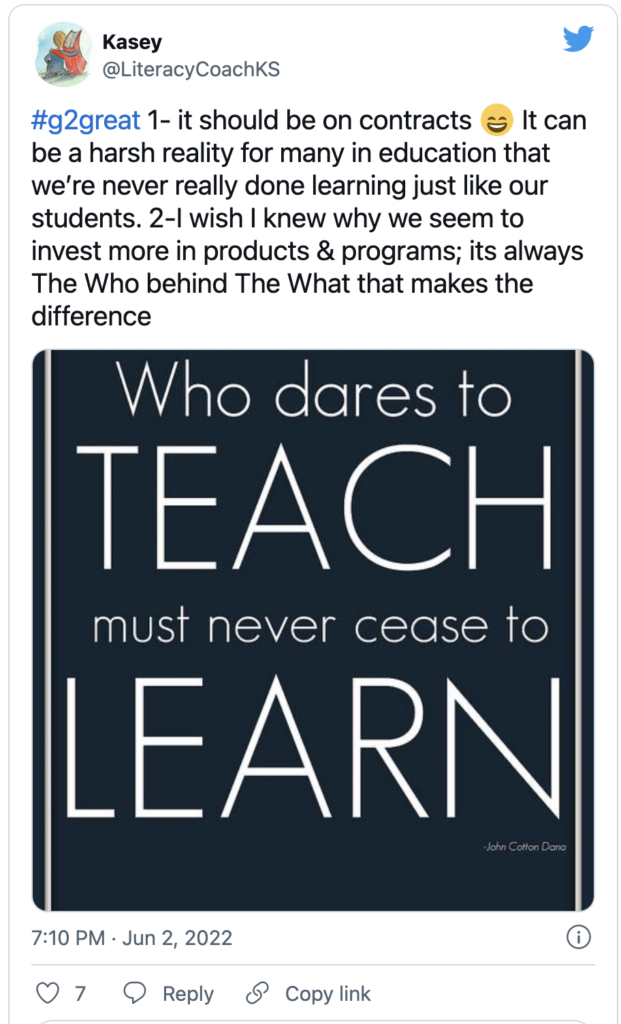
As classroom teachers, we are often the last consulted and the first blamed when Literacy Initiatives fail. As we reflected on Thursday the answers seem pretty simple. Invest in kids, Invest in teachers. This does not mean there are no programs or assessments out there that will not support this work. It does mean however that we should not build our work around a program that ignores the expertise of teachers or the lived experience of our students.
Successful Literacy Initiatives should have a goal to support our students in all areas of literacy. This knowledge comes from working with our kids and building off the work of experts. This is not quick work. There are so many possibilities for what causes students to struggle in literacy work. We need time, knowledge, choice, flexibility, and most of all respect to find these answers.
Like Dr. Miah Daughtery states, “we teach reading for liberty.” The consequences of an illiterate population are catastrophic. Our students need to receive the support to find success. Successful Literacy Initiatives can be that support.
